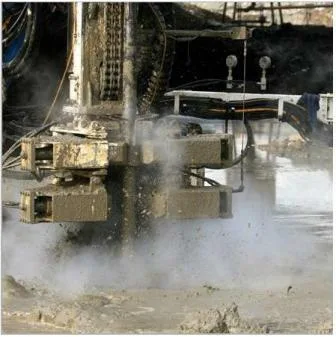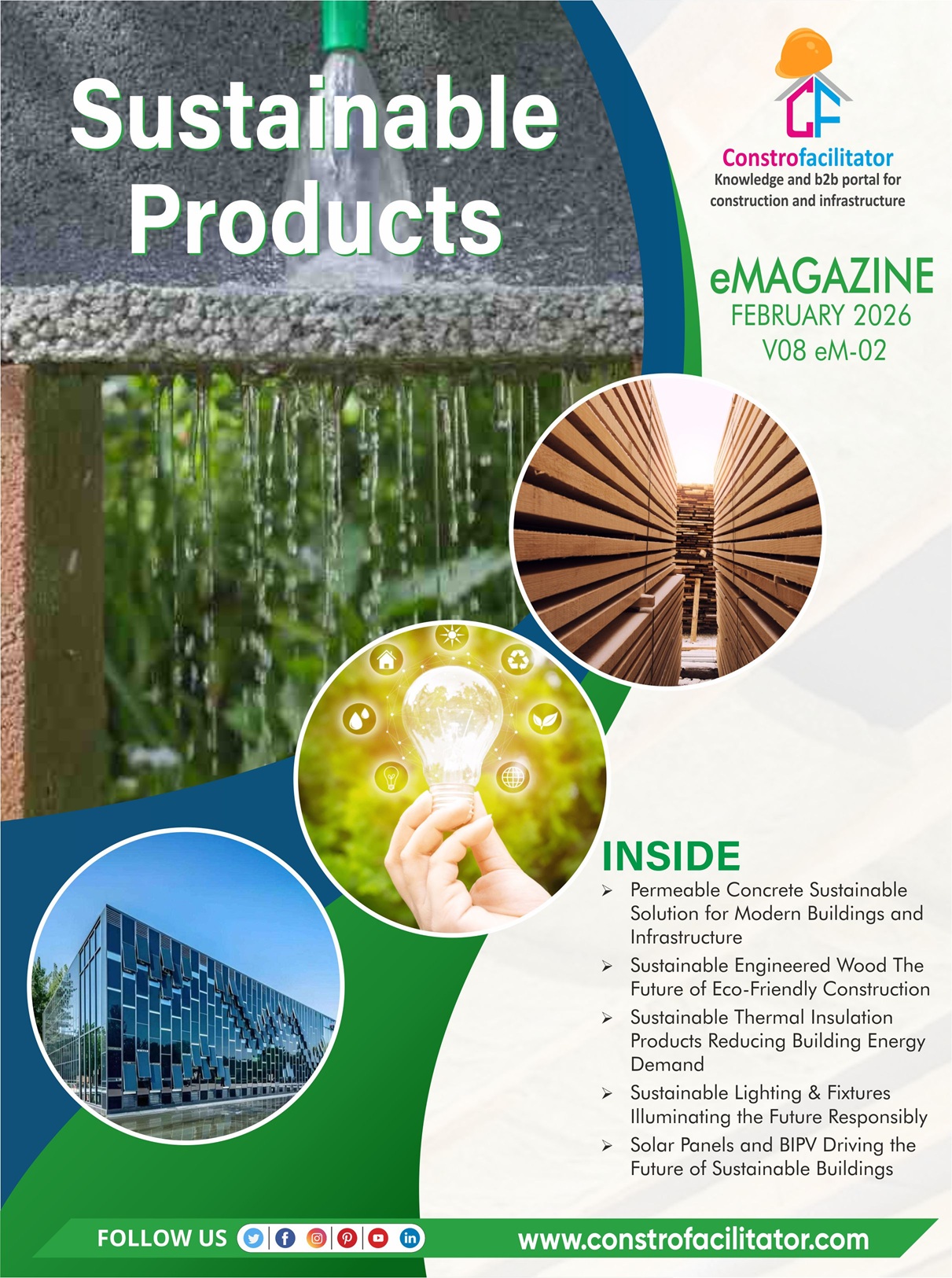Jet grouting is a ground improvement method that involves injecting high-pressure jets of grout into the soil to create strong, cemented columns. This process enhances the mechanical properties of the soil, such as its strength and permeability, making it ideal for foundation support, slope stabilisation, and groundwater control. The importance of jet grouting lies in its versatility, as it can be applied in various soil conditions, including soft clays and loose sands, and allows for precise control over the treated area.
Applications of Jet Grouting
Jet grouting is widely used in various construction and geotechnical applications, including:
- Subway
- Metro tunnels
- Bridges
- Dams
- Retaining walls
- High-rise building
- Waterfront
- Basement
- Industrial facilities
Jet Grouting advantages
- Enhances soil strength and stability.
- Can be applied in a wide range of soil types.
- Allows for precise ground improvement in confined spaces.
- Improves load-bearing capacity of foundations.
- Controls groundwater and seepage effectively.
- Minimises settlement in sensitive structures.
- Reinforces existing structures without excavation.
- Creates impermeable barriers for water control.
- Adaptable to complex site conditions.
- Can be used for both temporary and permanent solutions.
- Reduces the risk of ground collapse in tunnelling.
- Provides quick and efficient soil stabilisation.
Types of Jet Grouting
The different types of jet grouting methods are primarily classified based on the number of fluid streams used during the process. Here’s an overview of the main types:
1. Single Fluid Jet Grouting
In this method, a high-pressure cement slurry is injected into the ground through a single nozzle. The jet of slurry breaks up and mixes with the surrounding soil, forming a solidified column.
2. Double Fluid Jet Grouting
Double fluid jet grouting uses both cement slurry and compressed air. The air enhances the cutting power of the slurry, making it more effective in denser soils like sands. The slurry is injected through one nozzle while air is delivered through another, improving the soil’s erosion and mixing.
3. Triple Fluid Jet Grouting
This method employs three jets: water, air, and cement slurry. The high-pressure water cuts through dense soils, while the air jet helps clear debris, and the cement slurry fills in and mixes with the soil.
4. Selective Jet Grouting
Selective jet grouting is designed to handle varying soil layers by adjusting the jetting method based on the soil profile. Depending on the soil conditions at different depths, single, double, or triple fluid methods may be applied.
5. Horizontal Jet Grouting
Unlike vertical jet grouting, this method involves injecting the grout horizontally to form horizontal columns or panels. It is commonly used for creating underground barriers or retaining walls in tunnel construction or foundation support.
Different types of equipments used for Jet Grouting
1. Jet Grouting Rigs
Jet grouting rigs are essential for creating boreholes and delivering high-pressure grout into the soil. These rigs are mounted on a crawler or truck, allowing them to move easily on uneven terrain, making them suitable for both confined and open spaces. The rigs are equipped with a rotary drilling head, enabling precise vertical, horizontal, or inclined drilling, depending on the project’s requirements. Jet grouting rigs can accommodate various jet grouting methods, from single to triple fluid methods. One of their key advantages is their versatility, as they can be adapted to handle different soil conditions and project constraints. Their compact design in smaller models allows them to be used in urban settings or areas with limited access.

2. High-Pressure Pumps
High-pressure pumps are used to inject the grout mixture into the soil with enough force to break up the ground and ensure thorough mixing. These pumps can generate pressures from 400 to 600 bar (or higher, depending on the project), making them essential for jet grouting in dense and compact soils. They provide a continuous flow of grout, ensuring uniform soil treatment throughout the column. The primary advantage of high-pressure pumps is their ability to deliver the precise pressure needed to optimise the cutting and mixing process, enhancing the quality of the ground improvement. Additionally, the pumps can be adjusted for different soil types, from loose sands to hard clays, making them versatile and widely applicable in various ground conditions.

3. Grout Mixers and Agitators
Grout mixers and agitators play an important role in preparing the cement slurry for jet grouting. Grout mixers blend water, cement, and any additives into a uniform mixture, while agitators keep the slurry in constant motion to prevent settling and clumping. This ensures that the grout remains homogeneous and easy to inject. Grout mixers often feature programmable settings, allowing for precise control over the slurry composition. The main advantage of these systems is that they provide consistent, high-quality grout that can meet the specific needs of the project. These machines are used in large-scale construction, where maintaining a consistent grout mixture is important for ensuring stability and uniformity in soil improvement.

4. Air Compressors
Air compressors are used in double and triple fluid jet grouting methods to supply compressed air, which enhances the cutting power of the grout jet. By adding an air stream to the grout or water jet, the soil is eroded more effectively, especially in dense or hard soils. The air also helps clear away debris, preventing clogging and ensuring the fluid can penetrate the ground fully. Air compressors used in jet grouting are typically heavy-duty and capable of producing high pressures. Their primary advantage is their ability to increase the efficiency of the jetting process, making them indispensable for projects involving compact or challenging soil conditions. Air compressors are crucial in projects where precision and enhanced soil erosion are required.

5. Cranes and Loaders
Cranes and loaders provide logistical support for jet grouting projects, particularly for moving heavy equipment, grout materials, and other supplies. These machines are essential in large-scale operations where the transportation of equipment, such as drilling rigs and pumps, is required across rough or difficult terrain. Cranes are used to lift and place heavy components, while loaders transport materials like cement and gravel. The main advantage of using cranes and loaders is their ability to handle large quantities of materials and heavy machinery, improving the overall efficiency and productivity of the project. They are particularly useful in remote or difficult-to-access sites, ensuring that all necessary equipment is in place for the jet grouting process.

Conclusion
Jet grouting is a highly effective ground improvement method that plays an important role in modern construction and geotechnical engineering. With its precision and adaptability, jet grouting offers significant advantages in mitigating soil challenges and ensuring long-term structural integrity, contributing to safer and more sustainable construction practices. As technology advances, the continued refinement of jet grouting methods will further expand its applications and efficiency.
Image Source: soilmecindia.co, suretech.co.in, bauer-india.com, soilmec.com




